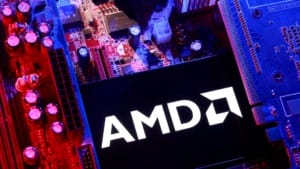Nvidia criticises Biden’s AI chip rules while seeking Trump’s support
Nvidia criticises Biden’s new AI chip restrictions, aligning with Trump’s policies while highlighting risks to US innovation and global competitiveness.

Nvidia is trying to align with former President Donald Trump while criticising newly announced AI export restrictions from the Biden administration. These rules aim to curb the spread of advanced artificial intelligence chips and models beyond the United States and its allies. With the transition to the Trump administration, the final decision on implementing these rules now lies in the hands of the President-elect.
Table Of Content
Biden’s AI rules tighten chip exports
The “Interim Final Rule on Artificial Intelligence Diffusion,” unveiled on January 12, introduces strict limits on exporting AI chips. Companies must secure special agreements with the US government to send chips to countries outside a select group of 18 allies, including the UK, Canada, Germany, Japan, and South Korea. Nations like China and Russia, already facing semiconductor trade restrictions, would face tighter controls.
The new measures aim to maintain the US and its allies’ leadership in transformative AI technology while addressing concerns about its potential misuse. The White House emphasised the national security risks posed by robust AI systems in the wrong hands, citing threats like weapons development, cyberattacks, and mass surveillance.
These changes will affect Nvidia, holding approximately 90% of the AI chip market. The company expressed strong opposition, warning of the potential economic and innovation-related consequences.
Nvidia’s strong criticism
In a statement, Nvidia accused the Biden administration of drafting an overreaching, “200+ page regulatory morass” in secrecy, arguing that the rules threaten America’s leadership in AI development.
“The first Trump Administration laid the foundation for America’s current strength in AI, fostering an environment where US industry could thrive while protecting national security,” Nvidia stated. The company further argued that the Biden administration’s approach would harm America’s competitive edge, stifle innovation, and derail global economic growth.
Nvidia expressed hope that the incoming administration would adopt policies that reinforce American leadership in AI and bolster the economy.
Despite this alignment with Trump’s policy perspective, Nvidia’s CEO, Jensen Huang, has yet to receive an invitation to Trump’s Mar-a-Lago estate. Nvidia has not contributed to Trump’s inaugural fund. However, given the circumstances, Nvidia may seek court favour with the new administration.
Rules extend beyond chips
The new regulations also address security concerns with AI models. Companies must adhere to standards controlling the “weights” in AI models, which are the unique parameters that guide predictions. Microsoft and Google, which operate extensive data centres, can apply for special government accreditation, allowing them to trade AI chips with fewer restrictions, provided they meet these security standards.
The Biden administration believes these measures will help keep cutting-edge AI development within the US and its allies. Microsoft president Brad Smith stated that the company could comply with the new rules while meeting the needs of global customers who rely on its technology.
Nvidia’s criticism highlights a significant industry concern about balancing innovation, national security, and global competitiveness in the rapidly evolving AI sector.
















